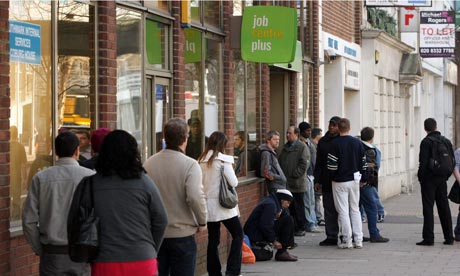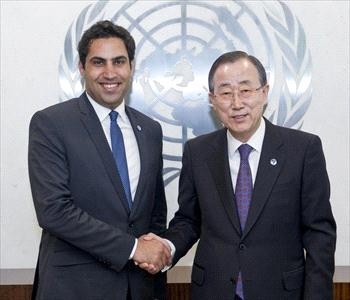16th April 2014
Youth is Wasted on the Young
The bloom of youth seems to offer everything: good health, endless reserves of energy and an unquestionable thirst for knowledge.
Yet young people today face enormous challenges. Over 75 million young people are unemployed worldwide. The fact is that the world has become a much more competitive place. Studying for a good education, finding a job, starting a family are all becoming tougher.
Older people like to say: “If I’d known then what I know now…” But would we really have done anything differently? Making mistakes and, hopefully, learning from them is part of growing up. Failure is not a disgrace, it is part of life’s long learning curve; and it can be a positive experience that will improve the chances of success next time round.

Young people constitute a large proportion of any country’s population. This is especially so in the Middle East. The task of governments is to help young people fulfil their potential – for their own benefit; and to unlock their talents – for the collective good of the country.
The best way to meet the needs of young people is by giving them a voice. They need to participate in decisions that affect them. Governments, municipalities, universities and schools need to engage with them and help them take ownership of their futures. Youth policy must be integrated into all government policies.
This was the message we heard from Ahmed Al-Hindawi, the United Nation’s Secretary General’s first ever Youth Envoy. He is Jordanian and was speaking at the Talal Abu Ghazaleh Knowledge Forum in Amman last week.
At the heart of his message was the need to work with young people, not for them. And he set out the challenge in stark terms: population growth means that 600 million new job opportunities will have to be created in the next 15 years.

These jobs will not be created by governments. They will have to come from the private sector. The role of governments is to help young people develop the skills that businesses need and guide them towards the sectors with the best prospects for a job through targeted, realistic career counselling. That might not mean a prestigious degree and a high-sounding profession. It might be better to aim for vocational training in an area where skills are lacking.
He warned that a university certificate is not a guarantee for finding a job; indeed, higher rates of unemployment are found among holders of higher education degrees in many countries.
How can young people gain a voice in policies that are relevant to them? Authorities must invite them in, engage them in debate and show that their views are valued. To support this process in Jordan, we are funding a project with the Al-Thoria Studies Institute to train young people to engage with municipalities.
In the UK, the Youth Parliament discusses issues that contribute to government policy. Over a quarter of a million young people voted on the issues to be debated by 307 members aged 11-18. They meet in the Chamber of the House of Commons in Westminster, so they are heard by decision-takers and get a taste for how to tackle issue in the future.
It was the Irish writer George Bernard Shaw who said that “Youth is wasted on the young”. He went on to be one of the founders of the London School of Economics, so he must have been conscious of the importance of nurturing young people’s curiosity, harnessing their energies and investing in their hope for a better future.
Youth is not wasted on the young. It is a necessary staging post on the road to maturity.
Muy bueno tu blog y estoy siguiendo su cargo por un largo tiempo!
good article and nice thinking .
muito bom !
Dear Peter ,
you ´re right by writing of what youth has to offer but pls. let me add just two – to me – important points .
#1 : the youth is also facing a very uncertain future in re. of the global environment pollution.
#2 : the high risk of becoming not only once – as me – unemployed but maybe twice or three times.
So it ´s good of you by drawing attention to the fact that “75” millions of young people are already unemployed. So far.
That ´s why it ´s notable to me that you´ve also mentioned of what the tasks of governments within this context r e a l l y should be :
a support and an assistance to young people so that they ´re able to “fulfil”
their enormous potential in the best way possible. Plus & also remarkable to me : yr. description of the message by Jordanian UN Youth Envoy , Sir Ahmed Al Hindawi . I only can agree to his statements held in Amman.
To conclude : it ´s great that you ´ve mentioned a famous quote by G.B. Shaw. So pls. allow me to “answer” & ending to you by using another well known saying of the master himself : ” Youth is a wonderful thing. What a crime to waste it only to children”.
Best wishes & take care – but esp. a happy and peacuful Easter , liebe Grüßle ond oin friedliches Oschtern ,
Ingo-Steven , Stutengarten